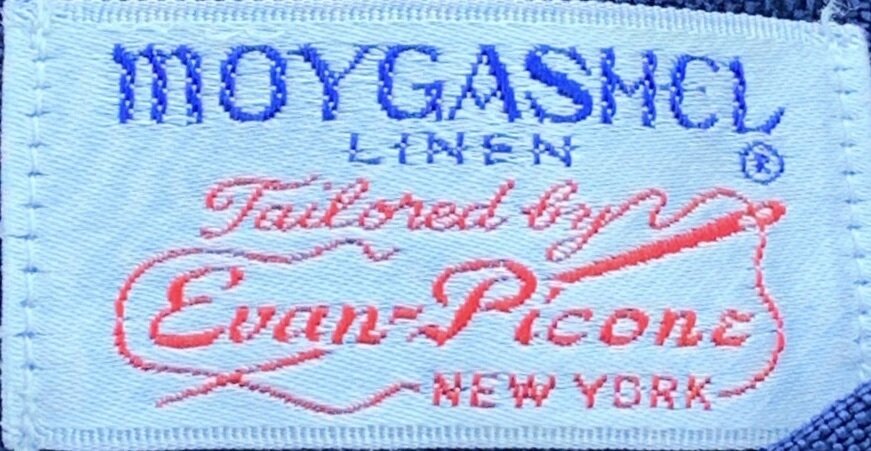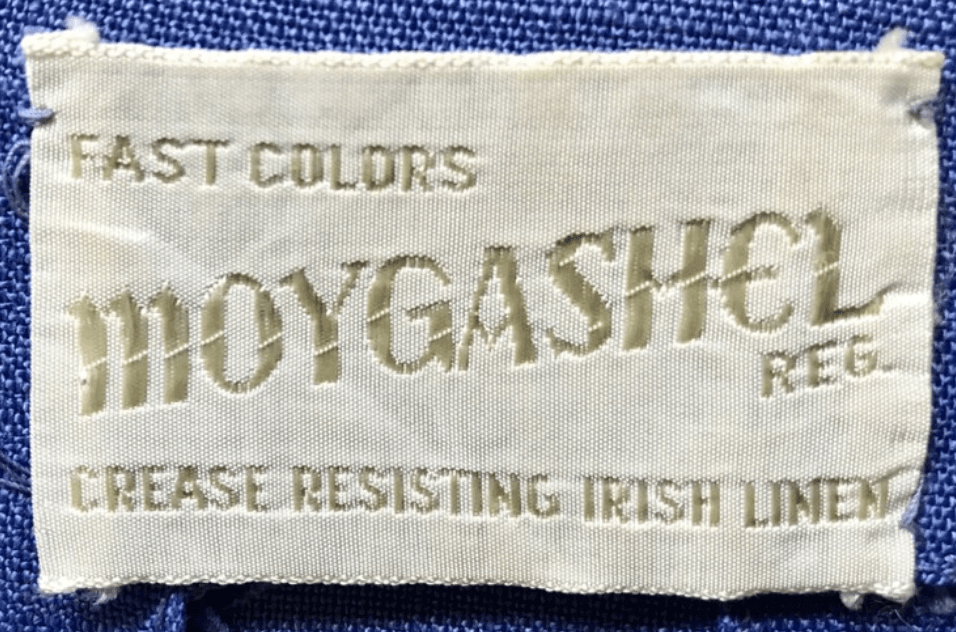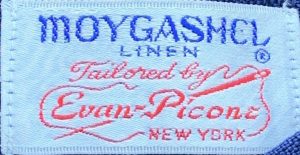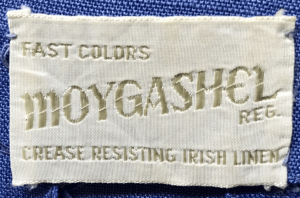Moygashel Linen Mills was founded in 1795 by Quaker Thomas Boardman in the small Irish village bearing its name. After Boardman’s untimely death, ownership of the mill was passed along though a series of relatives and Quaker colleagues until the mill burnt down in 1868. In 1876 Robert Stevenson, who was from a Scottish plantation family, rebuilt the mill at Moygashel, adding modern improvements to earn its reputation as the most technologically advanced mills of its time. He also built housing for his employees, creating a community of linen beetlers, bobbin winders and carters from the factory.
Stevenson’s became a limited company in 1907. By 1936 the Stevensons were aware that a European war would prevent flax imports reaching Moygashel and began growing their own supplies using Belgian seed. Moygashel was instrumental to the war effort in both World Wars, as a manufacturer of essential materials like parachute harness straps, gun coverings and hosepipes.
Moygashel fabric was made available for purchase in fabric stores from the 1940s through the 1960s. Prized for its superior quality, Moygashel labels were often sewn into designer garments in addition to their own brand labels.
Moygashel Ltd. was bought by Courtaulds in 1969 who sold it to Lamont Holdings in 1980. In the early 2000s Moygashel Community Development Association Ltd. developed the site as The Linen Green, Ireland’s first designer outlet mall. Ulster Weavers Apparel Ltd. purchased Moygashel in 2001.
Written by Ranch Queen Vintage



